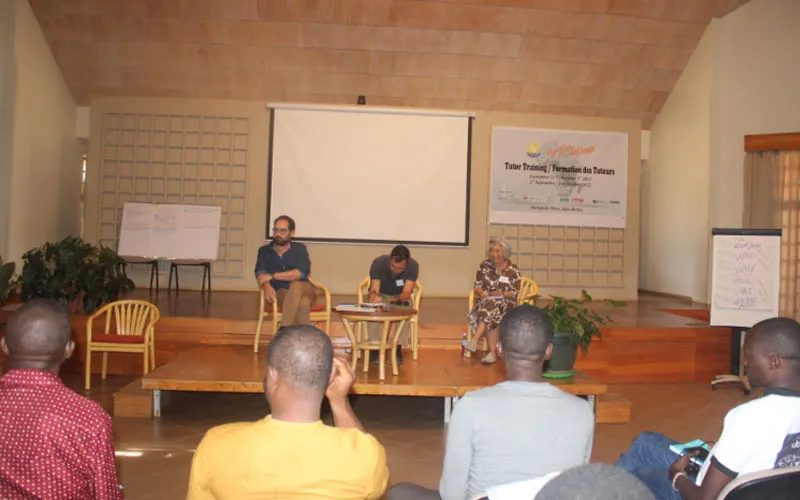The Rector of Sophia university did not, however, dispute the founders’ dream to have a “Sophia University in Africa”, saying, “I think it might take some years. But still, rather than saying, we can't do it, we said, let's start; this is how we're going to start.”
Mr. O’Byrne said that the T4NA initiative had made Sophia University “very proud”.
“It was very surprising that the students might decide that they wanted to start a university. And this was seen as a very good thing,” he said, and added, “The moral support was immediate. So how does it make us feel? Very proud. I think it meant that the lecturers and people in Sophia felt that if students think that they want to have a version of Sophia somewhere, it means that maybe Sophia is doing a good job.”
Highlighting the support that Sophia university gave to the T4NA initiative, O’Byrne said, “We support them through personnel and human energy. We organize for the lecturers who teach in the programs.”
“Sophia is the place where the students have the formation, which causes them to want to grow. And it continues to support the initiative by working together with the coordination team, working on the programs, and sending people. Sophia hasn't contributed to the program financially. We look for financing outside,” he said.
(Story continues below)
Mr. O’Byrne confessed that he had seen T4NA grow from its idea stage in 2004 by a handful of students at Sophia University.
“We have 14 countries now instead of seven,” he said, adding that although the number of countries is set to increase, few participants will be selected from each country to come up with a more focused group.
“We intend to select the people more carefully because we believe that doing a good job with the right people is better than doing a less good job with more people. The initiative has grown in its ability to give effective formation to the right people,” he said.
Meanwhile, Mr. O’Byrne has advised African students studying abroad to immerse themselves in the cultures of their host countries in order to open up their minds outside academia.
“Use the opportunity to learn about the local culture, to immerse yourself in the local culture to understand how people think, why they do things. Learn the language, if you can, don't just study in the university,” Mr. O’Byrne said during the September 29 interview with ACI Africa.
He added, “It is educational to also immerse yourself in other people’s cultures. I would give the same advice to somebody coming to study in Africa. Don't just study; live in the place. Immerse yourself in it. It opens your mind.”
Agnes Aineah is a Kenyan journalist with a background in digital and newspaper reporting. She holds a Master of Arts in Digital Journalism from the Aga Khan University, Graduate School of Media and Communications and a Bachelor's Degree in Linguistics, Media and Communications from Kenya's Moi University. Agnes currently serves as a journalist for ACI Africa.








